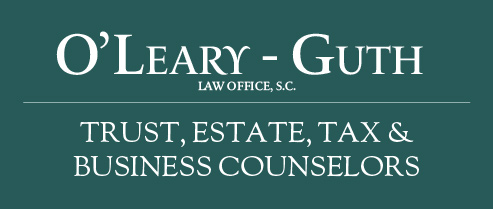ESTATE PLANNING
Attorney Sam Azinger is the practice leader for our firm's Estate Planning Practice Area. 
Careful estate planning can protect your assets during your lifetime and preserve your estate for your heirs and other beneficiaries after your death. A well thought out and personally tailored estate plan can insure your assets are distributed as you intended after your death while minimizing administrative costs, transfer costs, and taxes. An estate plan can also protect wealth from the claims of creditors and predators in the event of a divorce, lawsuit or bankruptcy.
Your estate plan may very well be the most important set of legal documents you will ever sign. With a well drafted estate plan you can:
- Control how your property will be distributed at the time of death
- Nominate a guardian for children
- Reduce the costs of probate (and, perhaps even eliminate the need for probate altogether)
- Reduce wealth transfer taxes at death
- Provide for the preservation of wealth and the conservation of assets both during life and after death
- Protect your estate and your heirs’ inheritance from creditor claims, divorce, and unnecessary taxation
Each estate plan begins with a complimentary introductory meeting at which time we can discuss your financial affairs, family dynamics, and goals. With that information in hand, we will be able to develop a personalized estate plan that is tailored to your unique situation. The estate plans we prepare often include a revocable living trust as their cornerstone. Revocable living trusts can eliminate the need for probate and insure your wealth is transferred to future generations after your death in a systematic manner. It may also help reduce the risk that someone will challenge your wishes after your death.
When necessary, we can also assist our clients with the implementation of sophisticated estate tax reduction strategies such as the establishment of family partnerships and limited liability companies, grantor trusts, irrevocable life insurance trusts, qualified personal residence trusts and charitable trusts to name just a few examples. Furthermore, current estate tax laws may make it beneficial to file an estate tax return even if the person who passed away does not owe estate taxes.
Gifts to charity, both during life and upon death, are oftentimes an important part of a person’s estate plan. However, careful planning is needed to insure charitable gifts and bequests produce the greatest possible impact and maximum tax benefits. For example, while charitable bequests at death are deductible when determining federal estate taxes, charitable gifts made during life avoid gift taxes and typically result in a federal income tax deduction. As a result, from a tax perspective, charitable gifts during lifetime are often more advantageous than gifts made at death.
We have the experience and knowledge needed to make sure your charitable gifts and bequests are structured in a way that best suits your intentions. For example, we can help you evaluate a variety of charitable giving strategies including:
- Gifts and bequests
- Donor advised funds
- Charitable Trusts
- Private Foundations
Elder LAW and special needs
Estate Planning can often involve certain aspects of elder law planning and special needs planning.
Elder law and special needs planning focus on the issues that affect us as we or members of our family experience aging and helping people with special needs and their families plan for the future. For many clients, this involves finding good resources for long-term care and finding the best ways to pay for it, including preserving assets and income for a spouse and/or preserving assets to be passed on to descendants. Often simultaneously, the focus is on making sure wishes are honored and autonomy is maintained as much as possible for special needs individualds and individuals advancing in age.
O'Leary-Guth Law Office, S.C. assists clients with a variety of legal issues focused on elder and disability law and special needs planning, which may include:
- Planning for a nursing home stay or long-term care;
- Qualifying and applying for Medicaid (Title 19), income benefits, housing benefits, and medical assistance;
- Seeking guardianship of a parent, child, or other loved one;
- Transition planning for a child with a disability as he/she reaches adulthood;
- Drafting and utilizing special needs trusts to preserve assets and maintain a standard of living; and
- Drafting advanced directives and other estate planning documents to carry out wishes and maximize planning opportunities.
We also maintain close relationships with local agencies and community resources, as well as other professionals who focus on these issues, so that we can guide clients to the best possible solutions for their particular situation.
Schedule an appointment with us today.
Meet with a knowledgeable attorney who specializes in your area of law.
1251 W. Glen Oaks Lane, Mequon, WI 53092
F: (262) 238-6999
